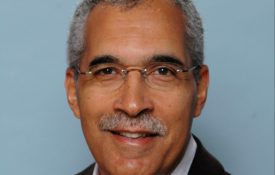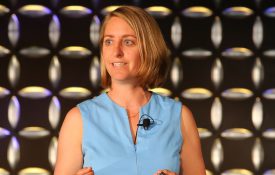-

Claude M. Steele Named Fellow of the American Academy of Political and Social Science
APS Past Board Member Claude M. Steele was elected as the 2017 Gordon Allport Fellow of the American Academy of Political and Social Science, in recognition of his work on stereotype threat, its application to minority student academic performance, and more.
-

Measuring Our Changing First Impressions
People make rapid judgments about the characteristics of others based on their facial expressions. Although these first impressions may seem superficial, they have been found to predict legal, political, and financial outcomes. Research suggests that
-

Paper in Psychological Science has “Stood the Test of Time,” According to Google Scholar
Many scientists turn to Google Scholar for literature searches, tracking citation counts, and accessing preprints and published articles. But now there’s a new reason to visit the site: to explore a new feature, called Classic
-
2018 Cognitive Aging Conference Now Accepting Submissions
The biennial 2018 Cognitive Aging Conference, hosted by the Georgia Institute of Technology, will be held on May 3–6, 2018, in Atlanta, Georgia at the JW Marriott hotel in the Buckhead area of the city. There are different deadlines for symposium and paper submissions. Externally organized symposium proposals are due Sept 15, 2017. Symposia should target either a 90 minute or 2-hour time slot with presentations by 3–4 speakers, discussant optional. Submissions of abstracts for stand-alone posters or papers are due November 15, 2017. For more information, please visit the conference website.
-
Estes Fund Grants Aim to Raise Awareness of Computational Tools
The William K. and Katherine W. Estes Fund, which was created to honor the legacy of influential psychological scientist Bill Estes, has awarded three grants for programs focused on increasing awareness of how computational tools, models, and data collection can improve all areas of psychological science. Overseen jointly by APS and the Psychonomic Society, the Fund supports summer schools and workshops offering training in mathematical and computational modeling for PhD students, postdocs, and advanced researchers. It also promotes the teaching and practice of rigorous methodology in experimental and quantitative psychological science.
-

How Our Bodies Do – and Don’t – Shape Our Minds
Individuals’ bodies and their abilities to act within their environments shape their perceptions of their surroundings, says psychological scientist Jessica Witt, Colorado State University. Witt discussed the psychophysics experiments she’s conducted to demonstrate these perceptions during one of four presentations in a Presidential Symposium chaired by Susan Goldin-Meadow.

